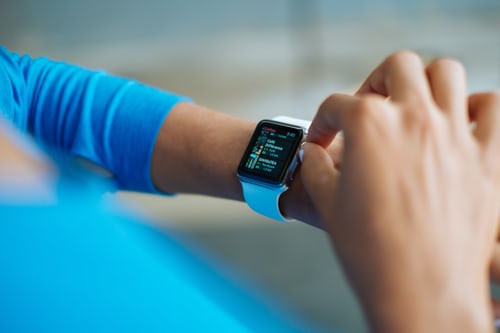
Since today’s college students spend a majority of their day interacting with technology, it makes sense to look for technology solutions that can address some of the major challenges new college students on the autism spectrum can expect to face as they navigate the college experience.
All students need time to become accustomed to college life. It takes time to adjust to a new environment, increased responsibilities, and the expanded independence and freedom that comes with college life.
For college-bound students with autism spectrum disorders, who rely heavily on structure and for whom transitions are especially difficult, it can be helpful to identify new ways of establishing routine, managing adult responsibilities and controlling stress.

Building Routines
We often meet high school students who still rely on parental prompting to maintain hygiene, sleep or medication routines.
Starting in middle school, students should be building structured morning and evening routines that they can follow independently. This will not only ensure that proper attention is paid to hygiene, medication and sleep when they are ready to head off to college, but routine can also help students with autism feel much less anxious.
Habitica (iOS and Android) uses gamification to help students set and track habits and goals, earn rewards, and connect with other Habitica users.
Productive Habit Tracker (iOS) allows students to create a to-do list, plan their day and habits, track progress and get reminders.

Organizing the Workload
While a typical day in high school follows to fairly rigid schedule, when students enter college they face a less structured schedule that can include a fluctuating daily schedule and large blocks of free time.
Therefore, students will benefit from finding technology solutions that work for them in organizing and planning their time.
iHomework2 (iOS) allows students to easily record class schedules, document assignment due dates, and track grades.
MyHomework (iOS, Android, Windows, Mac) helps students stay organized and syncs across devices.

Initiating Tasks and Managing Time
Students on the autism spectrum often become overwhelmed when faced with large tasks like writing assignments or projects. Getting started on assignments, especially in less preferred subjects, is often challenging as well.
Breaking assignments down into bite-sized parts can make things feel more manageable and often, once they get started, students become intensely focused and accomplish much more than they expected.
Marinara Timer (web based) uses the Pomodoro method to break tasks into short, timed intervals of work, spaced out by short breaks.
Google Calendar (iOS, Android, cloud-based) can be used to schedule reminders for repeating events like classes or non-repetitive appointments with professors, plan periods of focused work time, even create multiple, color coded calendars to track the due dates for each class.

Reducing Internet Distractions
The internet gives students access to an endless supply of information and entertainment. For students with autism, the internet is often used to connect with a source of friends and online community.
However, we have also seen the internet pull students into a rabbit hole of social media, wiki pages, and internet gaming that they can’t easily escape.
Productivity Owl (google chrome extension) allows students to block “time-wasting” websites and schedule “free-time” hours.
SelfControl (iOS) allows students to blacklist distracting websites for up to 24 hours

Managing Emotions
A healthy amount of stress can motivate students to be productive but overwhelming or uncontrolled stress can take a serious toll on a student’s physical health and emotional well-being.
All college students experience periods of high stress but people diagnosed with autism tend to have more difficulty regulating emotions than their typical peers (Cai, R., Richdale, A., Uljarevic, M., Dissanayake, C., Samson, A., 2018)
Breath2relax (iOS, Android) uses diaphragmatic breathing exercises to decrease the stress response and stabilize mood, control anger and reduce anxiety.
Calm (iOS, Android) features guided meditation for sleep and relaxation as well as sleep stories.

Of course, technology is only one tool students should have in their college success toolbox.
Colleges are often rich in resources so its important to combine technology tools with regular use of resources like tutoring services, office hours, and counseling or wellness supports as well as connect with academic support and disability service professionals on campus.